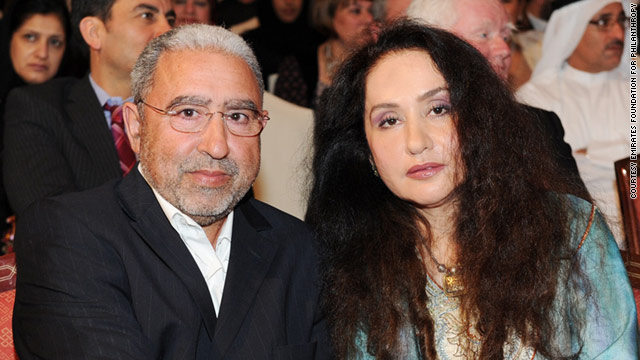馬上註冊,結交更多好友,享用更多功能,讓你輕鬆玩轉社區。
您需要 登錄 才可以下載或查看,沒有帳號?註冊 
x
Saudi writer first woman to win Arabic book prize

(CNN) -- A Saudi Arabian novelist has become the first woman to win the International Prize for Arabic Fiction, which she shares with a Moroccan writer.
Raja Alem, a Saudi novelist who wrote "The Doves' Necklace," and Mohammed Achaari, a Moroccan poet and author of "The Arch and the Butterfly," share the $50,000 prize, announced in Abu Dhabi on Monday March 13.
It is the first time the prestigious prize has been shared by two joint winners.
"The Doves' Necklace" is set in Mecca and explores crime, religious extremism and the exploitation of foreign workers by a "mafia" of building contractors, who are destroying the historic areas of the city.
Alem was born in Mecca and has lived most of her life overlooking the city's Holy Mosque.
She said: "Mecca is in my blood. All my 10 novels have all been about Mecca, it's a natural thing for me to write about.
"In the last years, Mecca has completely changed. All the new steel and glass skyscrapers make it completely different from the city that's surrounded by mountains with the Holy Mosque as the most grand edifice.
"The Mosque is now becoming a hole surrounded by giants."
Alem said when she first sent her manuscript to a publisher in Lebanon, he assumed she was a man.
I think Mecca won the prize, not a woman.
--Raja Alem, joint winner
RELATED TOPICS
Books and Literature
Arabic Language
Booker Prize Foundation
Abu Dhabi
"I never look at my writing in terms of gender. It's just human writing. I think Mecca won the prize, not a woman," she said.
Both winners are now guaranteed translation of their novels into English.
Alem said: "Winning the prize means more audience for Mecca. I'm giving Mecca a new life in new languages."
The other winner, "The Arch and the Butterfly" tackles the effect of Islamic extremism and terrorism on family life. It tells of a left-wing father who receives a letter from al Qaeda informing him that his son, who he believes is studying in Paris, has died a martyr in Afghanistan.
Achaari, 59, is a poet and former Moroccan Minister of Culture, who has written 10 books of poetry, a book of short stories and one novel.
He said of winning the prize: "It is important because it will make the book known and reach a greater number of people and foreign readers through translation. I hope this new situation will make me more disciplined as a writer."
Achaari said he chose to write about terrorism because it is a changing factor Moroccans must come to terms with in their daily lives.
He said: "I felt that these are things which are changing in our society which make people feel perplexed and makes them face their future with a lot of questioning and sometimes fear."
Chair of judges, Iraqi poet and novelist Fadhil Al-Azzawi, acknowledged the political nature of both winners.
He said: "They are two wonderful novels with great literary quality and they both deal with important and realistic problems in the Middle East, problems which have been reflected on banners during the recent protests that have shaken the Arab world, demanding change."
He added: "'The Arch and the Butterfly' deals with Islamic extremism and terrorism and its destructive effect upon Arabic society itself, rather than on the West.
"'The Doves' Necklace' reveals the true face of Mecca: behind the city's holy veil there is another Mecca, where many crimes are committed and there is also corruption, prostitution and mafias of building contractors who are destroying the historic areas of the city, and therefore its soul, for commercial gain."
The prize, now in its fourth year, is modeled on the Man Booker Prize and aims to increase international recognition of Arabic fiction, which was previously only available on a very limited basis outside the Arab world.
The winners were chosen from 123 entries from 17 countries across the Arab world. Female authors wrote 29% of the works submitted, compared with 16% last year.
Jonathan Taylor, the prize's chair of trustees, said: "These are interesting times for Arabic fiction, which are reflected in today's exceptional announcement. For the first time the judges decided that the prize should be shared between two extraordinary books selected from an outstanding shortlist." |